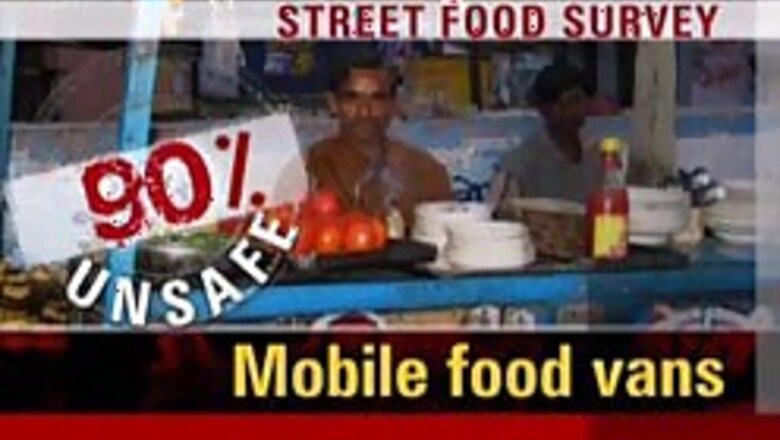
views
New Delhi: A Health Ministry survey in 16 cities has found that 90 per cent of street food is unfit for consumption.
A majority of street food vendors are unlicensed and not registered with municipal agencies. The vendors' main priority is to keep costs low, but meeting quality and safety requirements is not a concern, the survey found.
The ministry plans to educate hundreds of thousands of street vendors nationwide on food safety and hygiene. It would also monitor them to ensure they apply what they have learned, Health Minister Anbumani Ramadoss told reporters in New Delhi on Wednesday.
Vendors will be taught how to handle food, avoid contamination of cooking areas and produce, maintain personal hygiene, and safely dispose of garbage, said S P Gupta, who coordinated the survey.
"People are increasingly getting hooked on to street food due to its availability and convenience," said Ramadoss. "What we are trying to do is ensure it's hygienic and handled properly," he added.
PAGE_BREAK
The ministry also plans to introduce a ‘Street Food Code’ to ensure that vendors observe basic standards of hygiene and cleanliness. Under the code, food vendor licenses will become mandatory and municipal officials will have to carry out periodic health and hygiene checks.
"The burden of preventable infections, such as typhoid, cholera and diarrhea, can be reduced simply by observing standards of hygiene and sanitation," Ramadoss said.
Throughout India, hundreds of thousands of vendors turn pushcarts, kiosks and small roadside stands into cafes, serving up food anywhere from village lanes to railway stations. But the eateries are often unclean and the food preparation unsanitary, spreading diseases including diarrhea and typhoid.
Besides widespread ignorance, the health ministry survey found that most of the food shacks, fast food joints, and other food sellers (visited in 16 cities across the country) freely admitted to putting profits before customer safety.
"Employers say they don't want to employ trained food handlers because they think they'll have to pay more," said Dr S P Gupta, who coordinated the survey.
His report, partly financed by the World Bank, urges for a properly enforced licencing system that would allow someone to sell or prepare food only after receiving food hygiene training.
"You think of the taste and just forget everything else you know," said Dr Gupta pointing out that the majority of the country's snack sellers live in slums, and are have little or no education of bacterial contamination.
And with their tiny operating margins (the reports says the majority of mobile vendors earns less than Rs 400 a day) many are reluctant to spend extra amount on using purified water and other precautions recommended by the report.




















Comments
0 comment